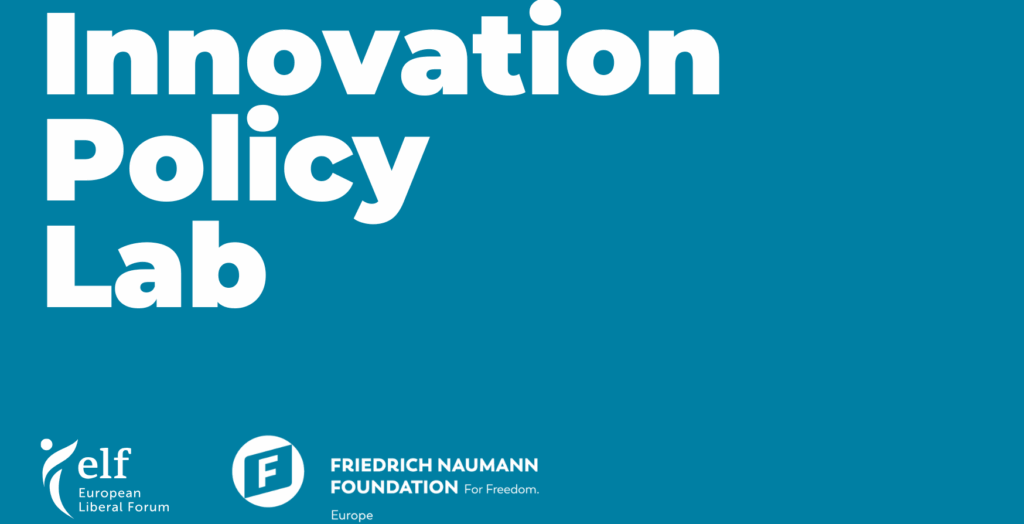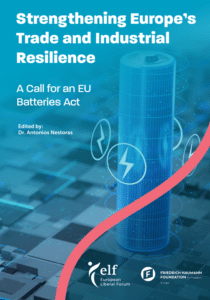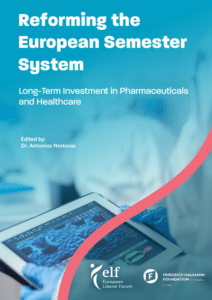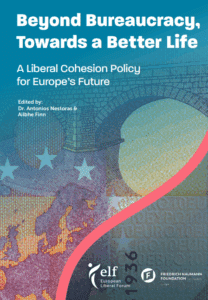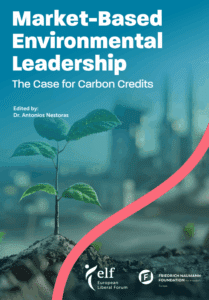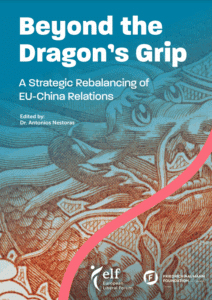Innovation Policy Lab
Innovation Policy Lab is a joint undertaking between the European Liberal Forum (ELF) and the Friedrich Naumann Foundation for Freedom Europe (FNF Europe). It represents a culmination of collaborative efforts, discussions, and expert insights aimed at addressing the multifaceted challenges confronting Europe.
